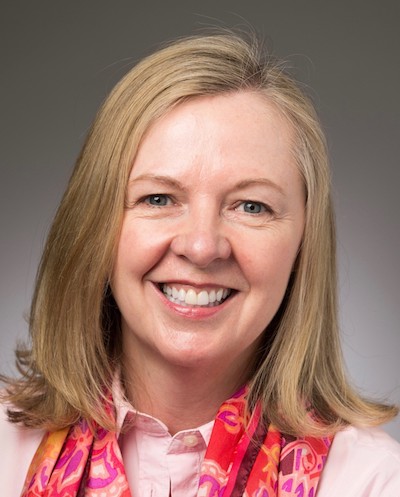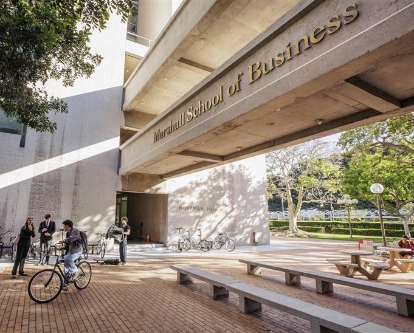
As a seasoned professional in the food industry, Lori Brown wasn’t looking for basic skills when she entered the first cohort of USC Marshall’s Master of Food Industry Leadership program.
Brown, who as Regional Vice President for Post Consumer Brands has more than 25 years in the industry, was looking to earn a credential from an institution she’d long heard about as well as an opportunity to dive deeper into her industry. But she ended up with much more than that.
“I had to go back to school to learn more about my own company,” she laughed.
USC Marshall has offered Food Industry Management programs in partnership with the Western Association Food Companies (WAFC) for more than 60 years. The 16-week residential intensive Food Industry Management program was developed in 1958 for a select group of promising young executives to gain a robust foundation in business fundamentals within a network of their peers. Over the years, the undergraduate FIM certificate program became a standard for the food industry and a highly competitive educational opportunity for ambitious food industry professionals.
In 2019, Marshall’s Food Industry Programs launched a specialized master’s degree program in Food Industry Leadership that was designed to be delivered online for working professionals and was targeted to food industry executives who wanted to take their management skills to the next level. “USC is a huge name in the food industry,” Brown said. “Joining the first class of this degree program was a big dream for me.”
Brown never expected to end up a food industry executive, she said. In college, she saw an advertisement posted on a campus community board for a job with a local supermarket and thought she could make some extra money while studying. Instead, she kept the job through college and kept moving up.
Beginner’s Mind
Although the class of 18 was comprised of mostly mid-career professionals, everyone came from a different company and brought their own skillsets. There were marketers, finance people, logistics people. “They brought every area of expertise, and we absolutely learned from each other,” said Brown.
For example: “Finance terrifies me,” she said. “I can read a profit and loss statement, but I’m a little afraid of accounting. But our professors were wonderful and there for us. Also, we had members of our cohort who were professionals in this space, and they helped us as well.”
Already a leader herself, she said she found the leadership classes particularly valuable. “There was so much experience in that room.” It’s one thing to deconstruct a labor strike situation in the classroom, another to talk to leaders in your industry who’ve gone through the experience. “It was invaluable access to real-world information and experience.”
For Brown, however, it was the opportunity to take a deeper look into her own company that was key.
As part of her assignments, she closely examined her company’s diversity, equity, and inclusion strategies. She interviewed the marketing team. “I knew we had a marketing team, but I never understood the complexities of what they do.”
Smart Solutions for the Industry
The 16-month capstone project amplified her expertise and that of her colleagues to approach a situation from the mindset of a leader and ask the kinds of questions that generate smart solutions to problems facing the industry.
Her team examined a small company called Rosie that provided online deliveries for independent grocers. “And because we researched this capstone project in 2020, we watched the demand for its services explode in real time.” Rosie saw a 900% increase in stores that signed up for its services during the pandemic.
Her team’s 25-page presentation offered evidence-based solutions for how to accommodate that growth. They carefully researched response-specific recommendations including partnering with CPG companies, scaling up, or moving to Main Street and shared them with the company. Those solutions were then shared with the industry via the trade press.
A Fresh Horizon
Brown said she sees a good future ahead for those in the food industry. “There’s something of a silver tsunami happening,” she said. “Leadership is beginning to retire. I would love to see younger people realize their paths forward.”
And the food industry is a fertile career option for young people, she said. There are many changes on the horizon that will require fresh thinking and sharp leadership skills—of the sort honed in the USC Marshall MS.FIL program.
“I’m getting to the point in my career where I want to mentor people,” she said. “I feel my role is to pull people up. My experience in the Food Industry Leadership program really drove that home.”




